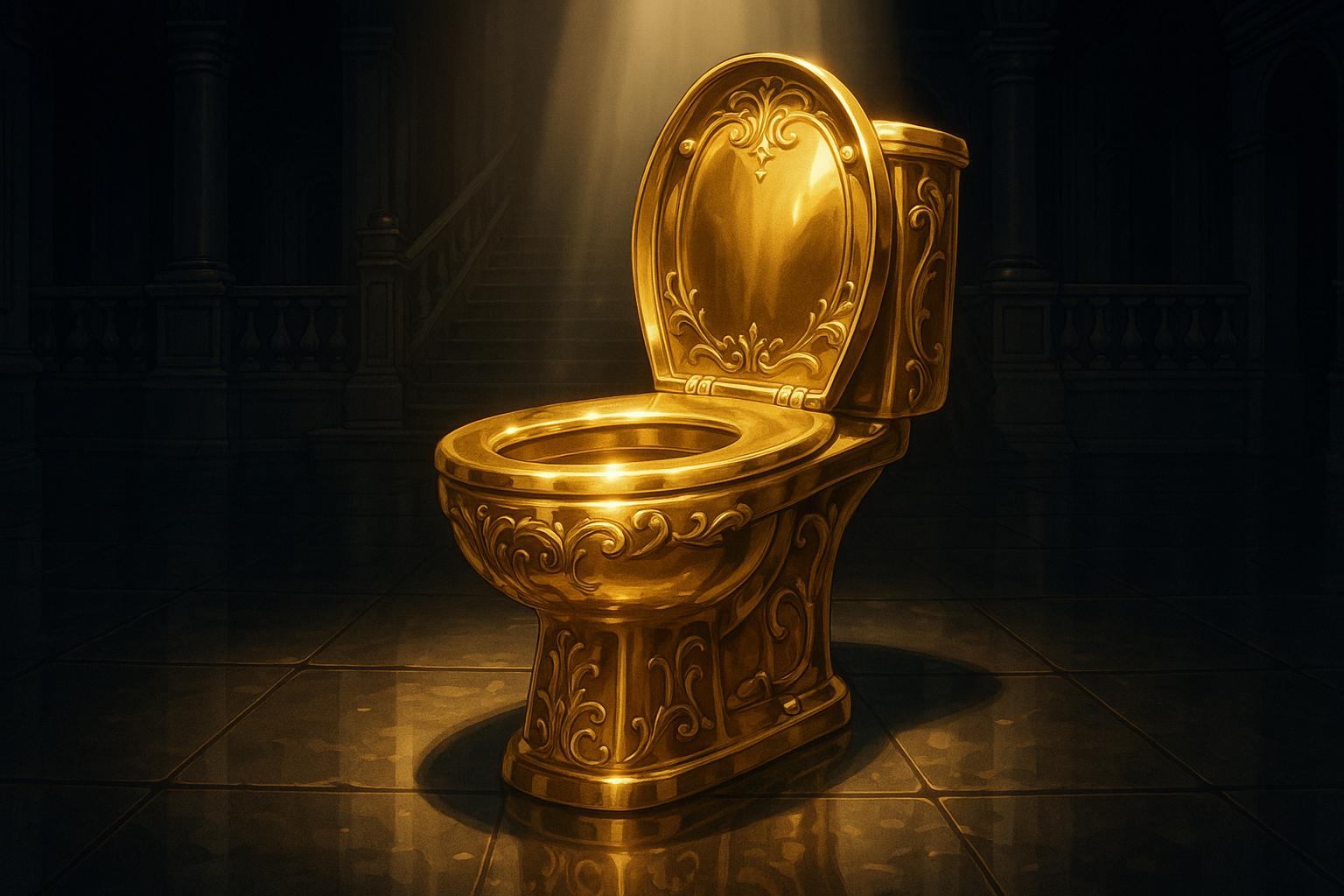The case of Fred Doe, whose involvement in the notorious theft of a £4.8 million golden toilet has sparked outrage among legal experts and the public alike, raises significant questions about how the justice system addresses art crime in the UK. The son of a multimillionaire caravan magnate, Doe was convicted of attempting to broker the sale of the stolen 18-carat gold toilet, created by Italian artist Maurizio Cattelan, which was taken from Blenheim Palace in September 2019. The palace, notable for its historical significance as the birthplace of Winston Churchill, housed the artwork as part of an exhibition. This audacious theft, carried out by a gang of five men using stolen vehicles and tools to break in, drew attention not only due to the artwork's value but also because of the brazen manner in which it was executed.
At Oxford Crown Court, Judge Ian Pringle suspended a 21-month prison sentence for Doe for two years, citing personal circumstances such as his wife's poor health and the wellbeing of his children as mitigating factors. The judge's decision has been met with scorn from art theft experts like Christopher Marinello, who remarked in the Mail’s 'The Trial' podcast that this lenient sentence demonstrates a significant disconnect between the judiciary and the victims of such crimes. Marinello challenged the notion that the outcome serves as a deterrent, stating that the legal system's response indicates that art crime does not carry the same weight as other forms of theft, perpetuating a narrative that encourages criminal activity in London.
Doe's involvement began when he learned from James Sheen—one of the burglars and a personal acquaintance from the traveller community—that the toilet had been stolen. Doe then attempted to leverage his connections in the London jewellery district to facilitate the sale of the gold. Sheen, after failing to find a buyer in London, reportedly sold his share of the gold for £520,000 in Birmingham, leading Marinello to express concern that the crime was not only trivialised but also that the punitive measures failed to address the broader implications of such actions.
Compounding the issue is the fact that the golden toilet, a fully functional work of art, has never been recovered. Police believe it may have been disassembled and sold off as smaller gold pieces. The operation caused considerable damage to Blenheim Palace, flooding the historic building in the process, which adds another layer to the theft's ramifications. Following the theft, the Guggenheim Museum, where the toilet was previously displayed, voiced their sadness over the loss but also highlighted how the artwork invited a unique engagement with its environment, making the theft all the more poignant.
The broader implications of this incident extend beyond the wealthy individuals involved. Marinello pointed out that while the insurance company technically bears the financial loss, the consequences trickle down to everyday people. Premiums are likely to rise in the wake of such thefts, impacting insurance rates for everyone. As such, the art crime embodies not just a loss of cultural heritage but also economic repercussions that could affect ordinary citizens through higher insurance costs, illustrating how deeply intertwined art theft is with societal dynamics.
Marinello's comments about the case reflect a growing sentiment that art theft is often not taken as seriously as other crimes, potentially encouraging a culture of impunity among criminals. With upcoming sentencing for the remaining culprits involved, including Sheen and Michael Jones, the art world and the public alike will closely watch how the legal system chooses to respond to this audacious act, hoping for a verdict that acknowledges the serious implications of art crime on cultural, emotional, and economic levels.
The case of the golden toilet theft encapsulates a troubling intersection of wealth, crime, and the legal system, prompting a call for reform in how artistic crimes are perceived and prosecuted in Britain.
Reference Map:
Source: Noah Wire Services
